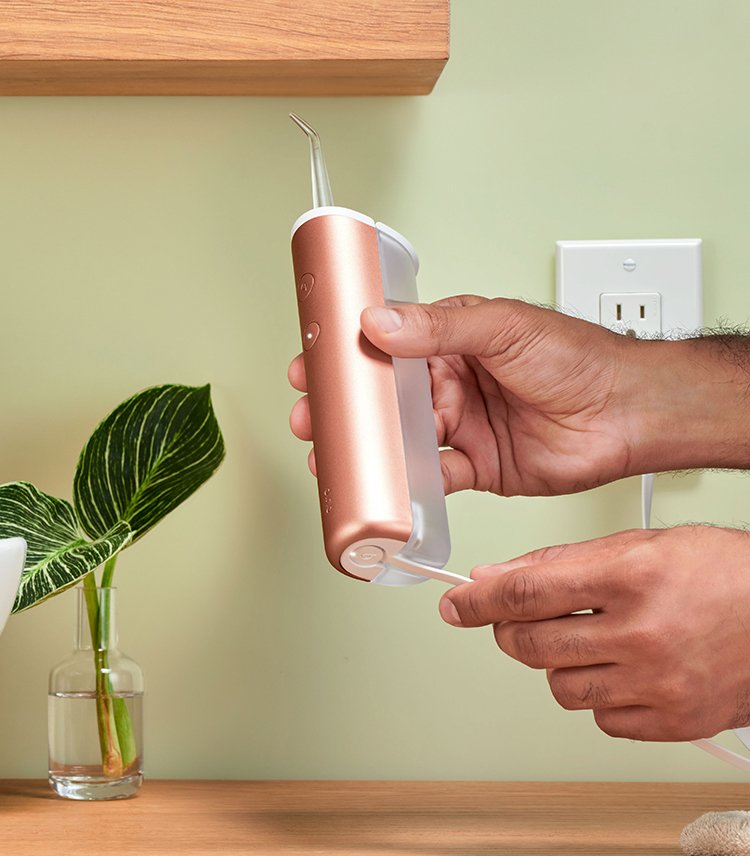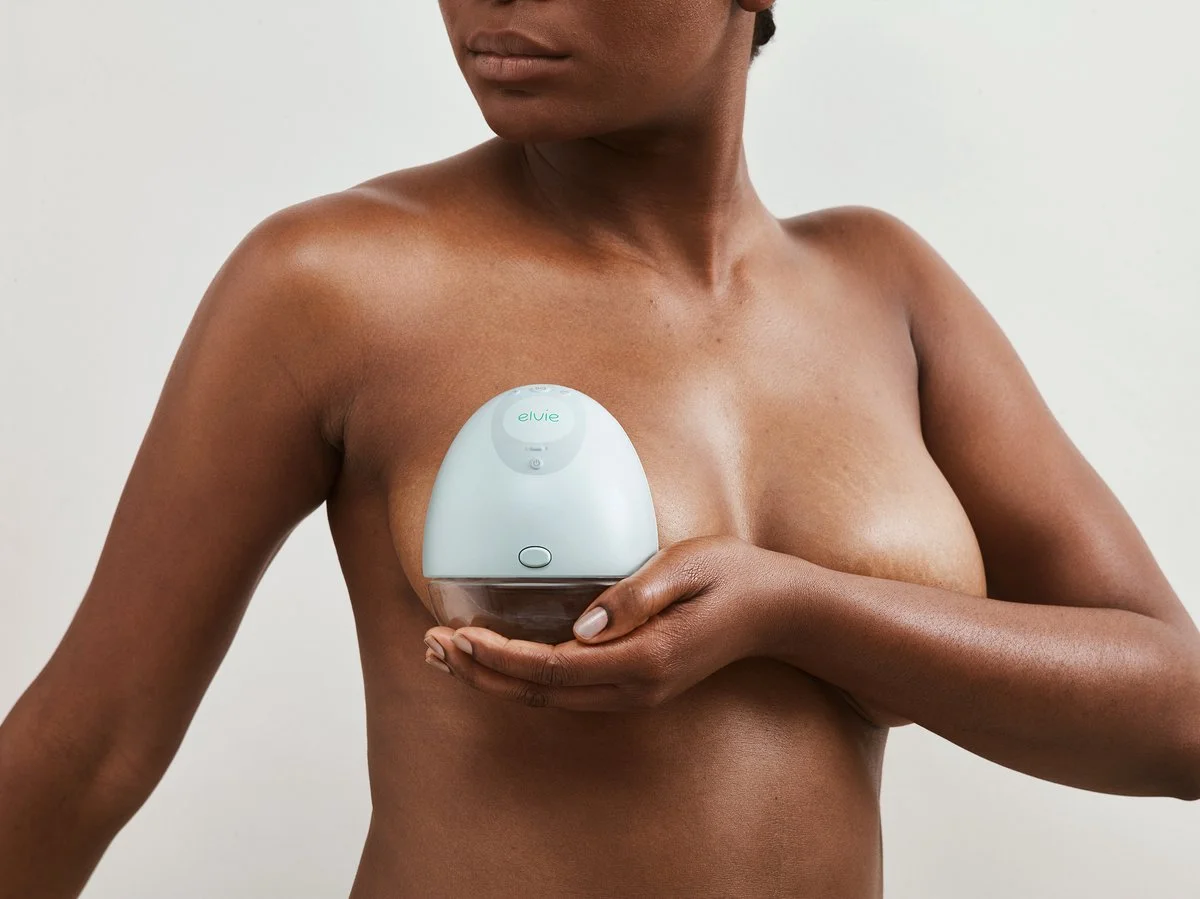
Revolutionizing Women's Health through First Ever Biotechnology Research
Women historically have been underrepresented in health clinical trials around the world. While some of those decisions were made to safeguard women, the result has been a lack of data on how drugs or technology impact women. Today, there is a big gap in clinical knowledge resulting in health care inequities, and it’s one that companies and researchers are still working to close. One of those companies is Qvin.
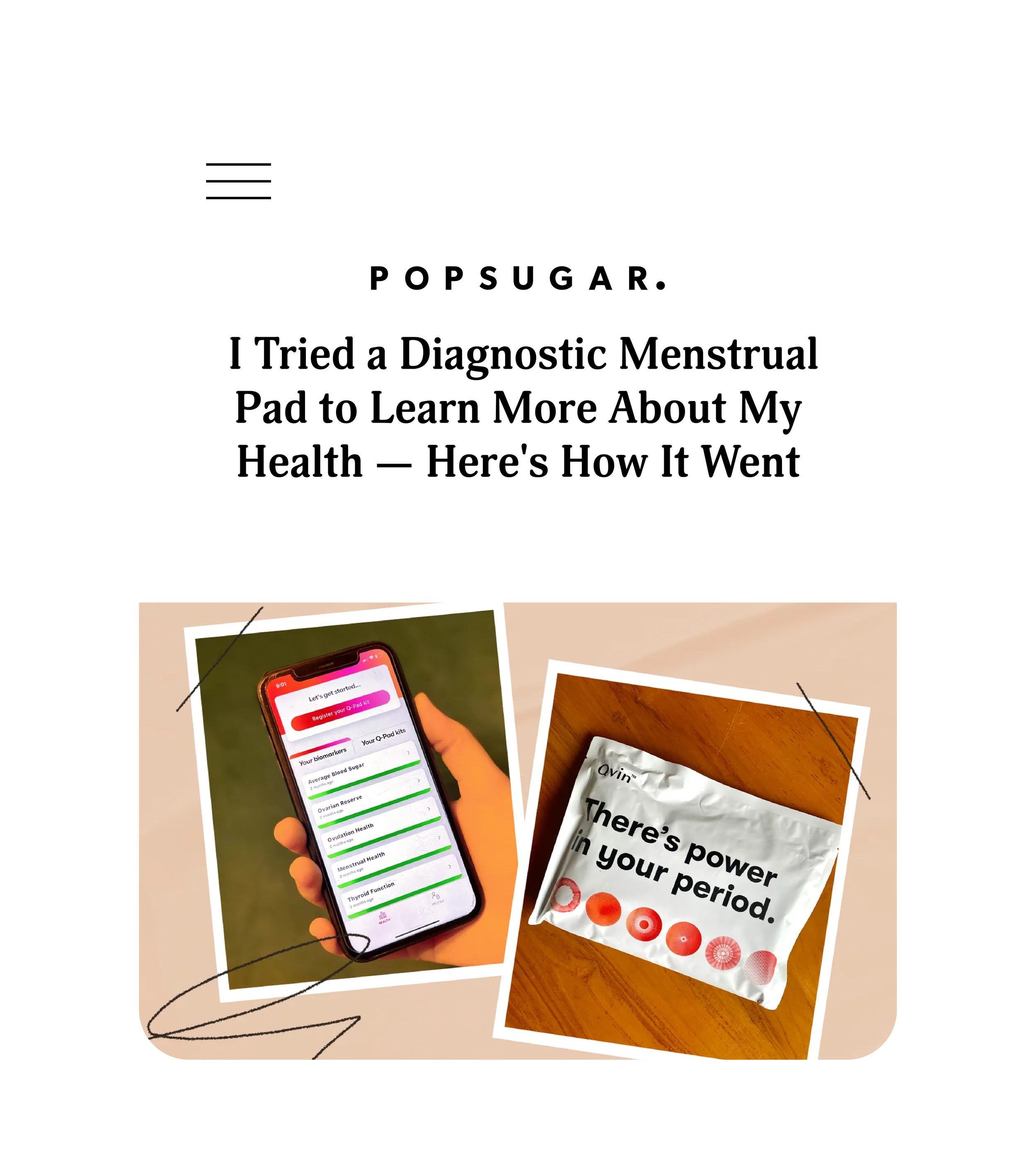

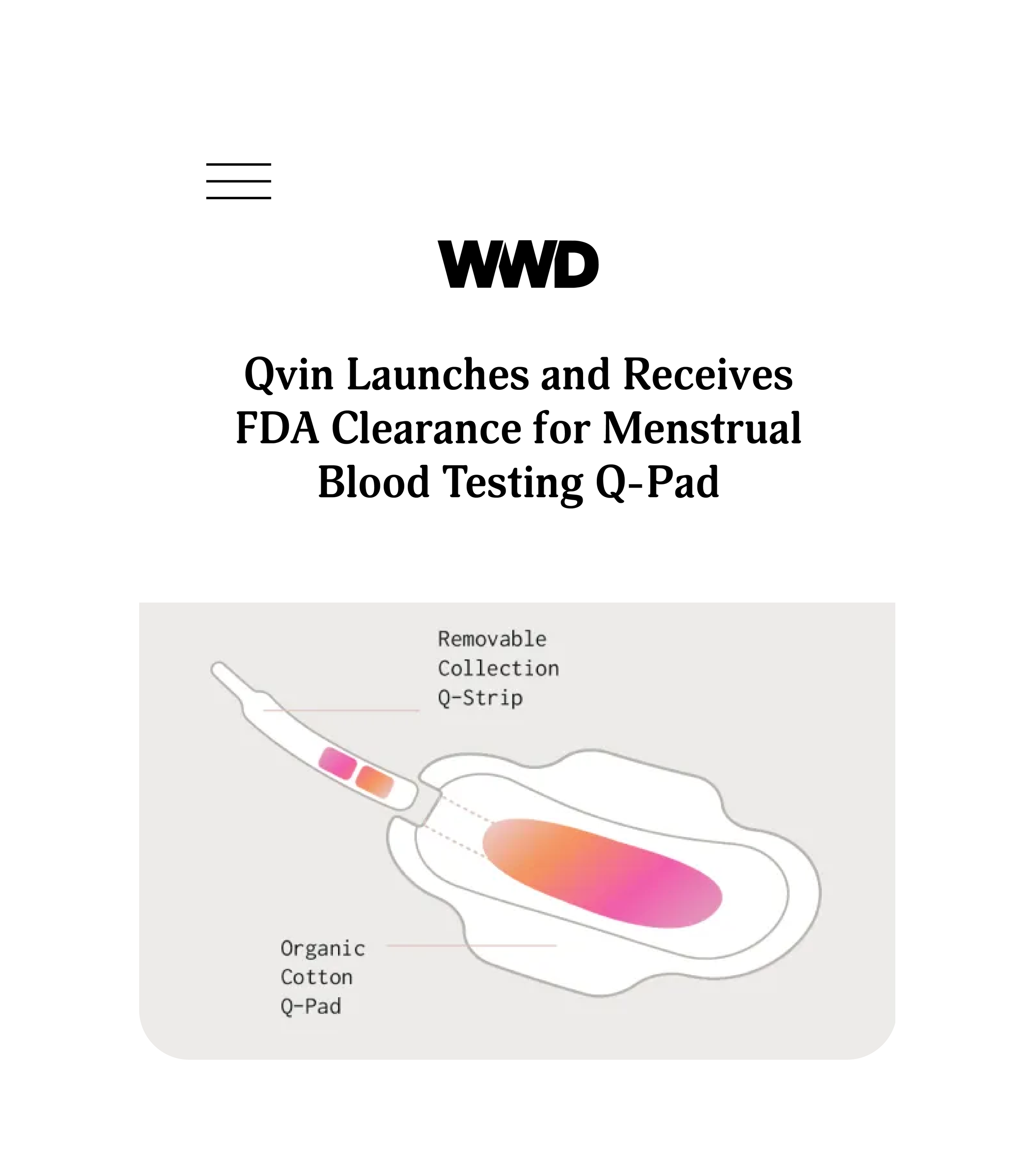
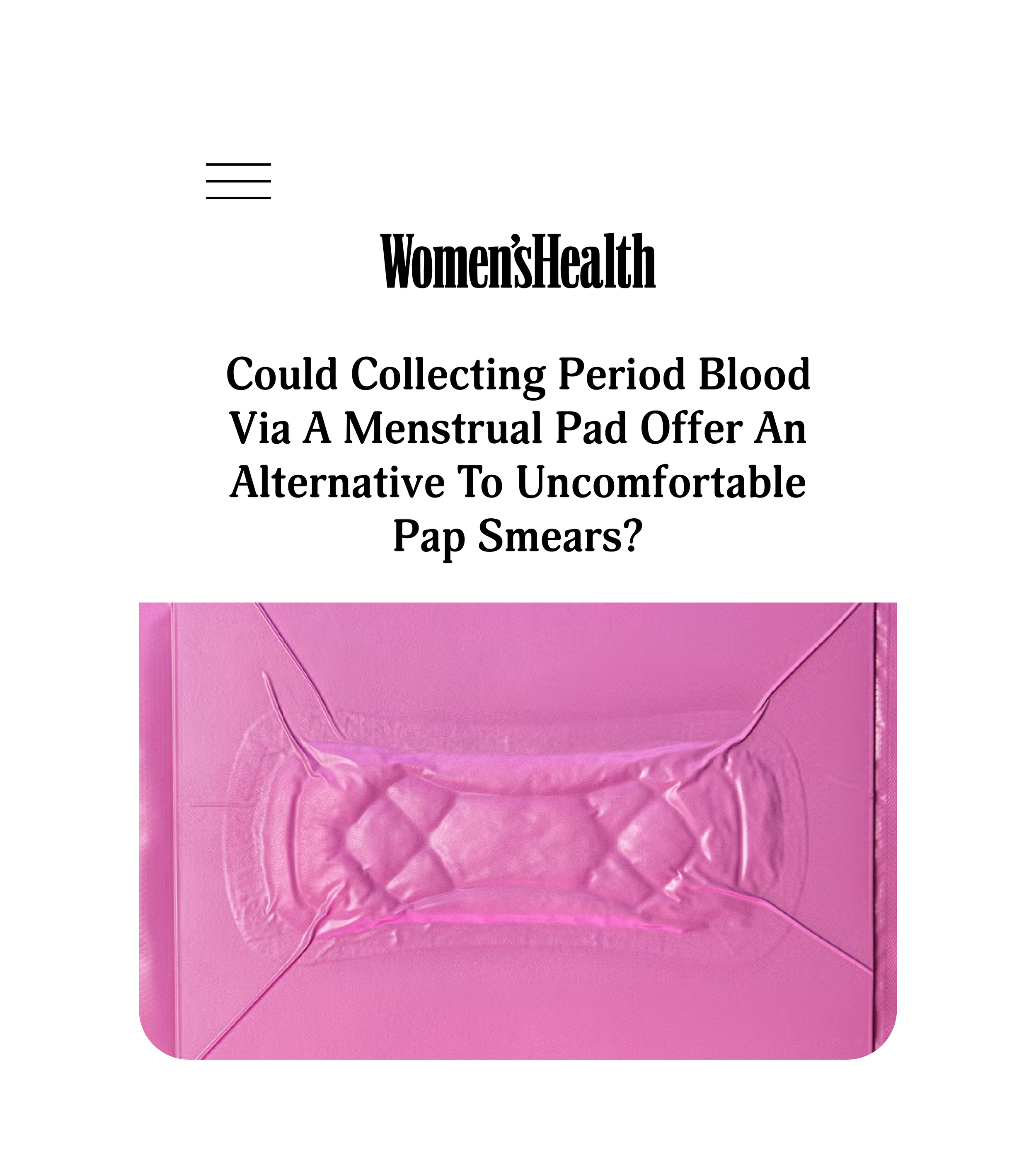


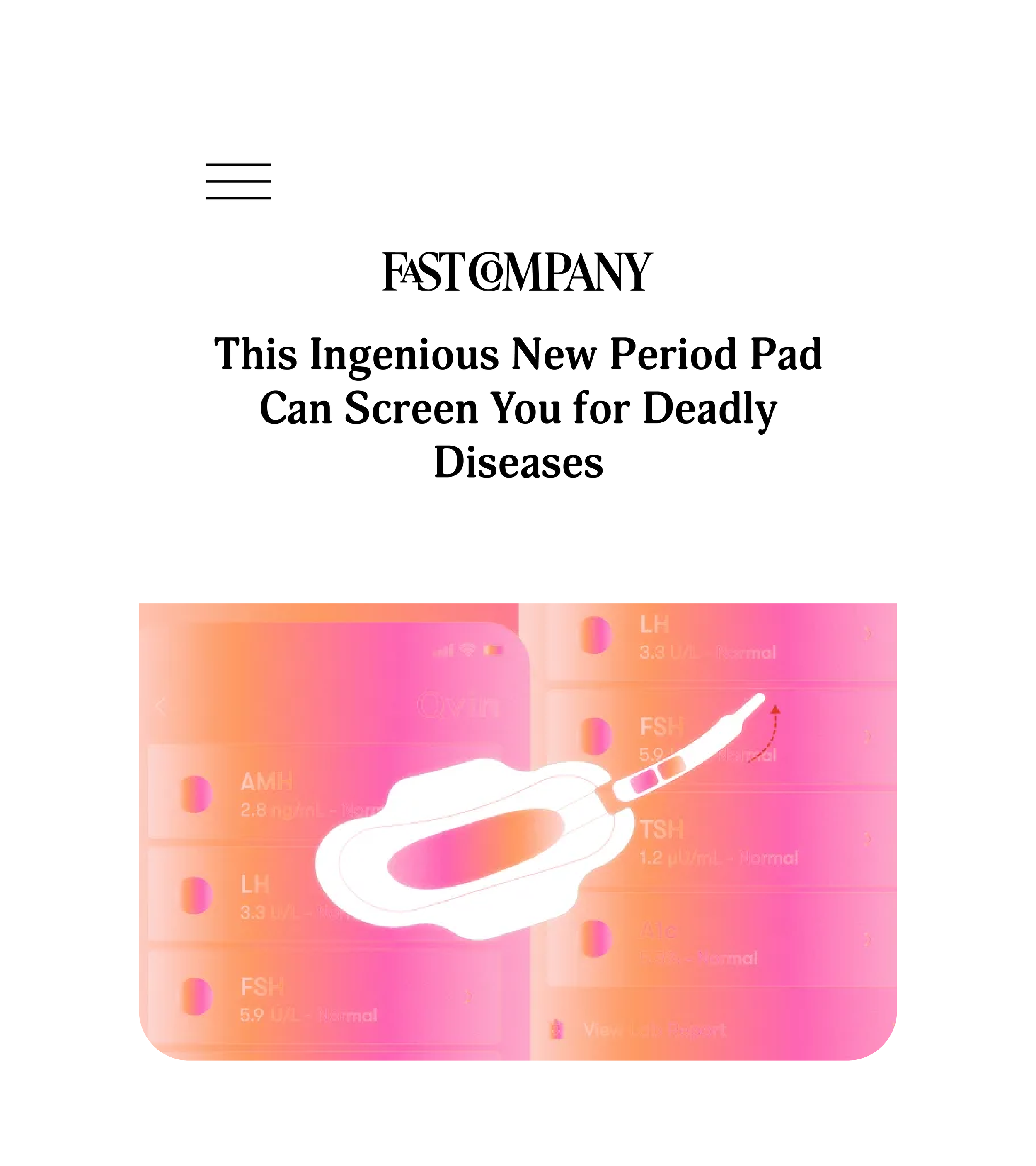

Elevating a first ever women’s health breakthrough
Dr. Sara Naseri, the founder of biotechnology research company Qvin (pronounced Kwin and meaning “women” in Danish) used her time at Stanford University to establish the clinical value of about 400 biomarkers in menstrual blood, some of which are found in veinous blood, but others that are unique to menstrual blood, including cervical cancer which resides in the uterus.
From that research, Dr. Naseri developed the innovative Q-Pad™, an FDA-cleared period pad that lets people who menstruate collect their menstrual blood from the comfort of their own home and get tested for a number of diseases like pre-diabetes and diabetes, thyroid health, anemia, fertility, perimenopause, and cervical cancer, which can currently only be detected through a fairly invasive pap test. This first ever product was not only poised to change the diagnostic landscape, but also the tools for health organizations worldwide that are helping women globally fight dangerous diseases like HPV.
Kaplow’s work with Qvin elevated not only the breakthrough nature of founder Dr. Naseri’s science, but also the impact that its product development represented.
ONE Session Narrative Development Relations & Conference Strategy
Thought Leadership Strategy
Earned Media


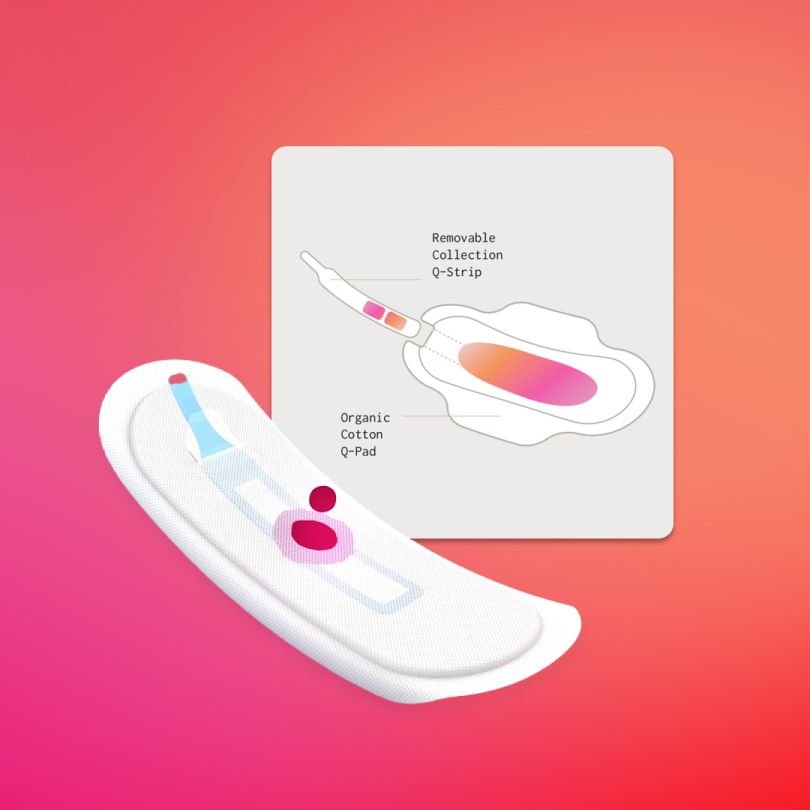
Case Studies


